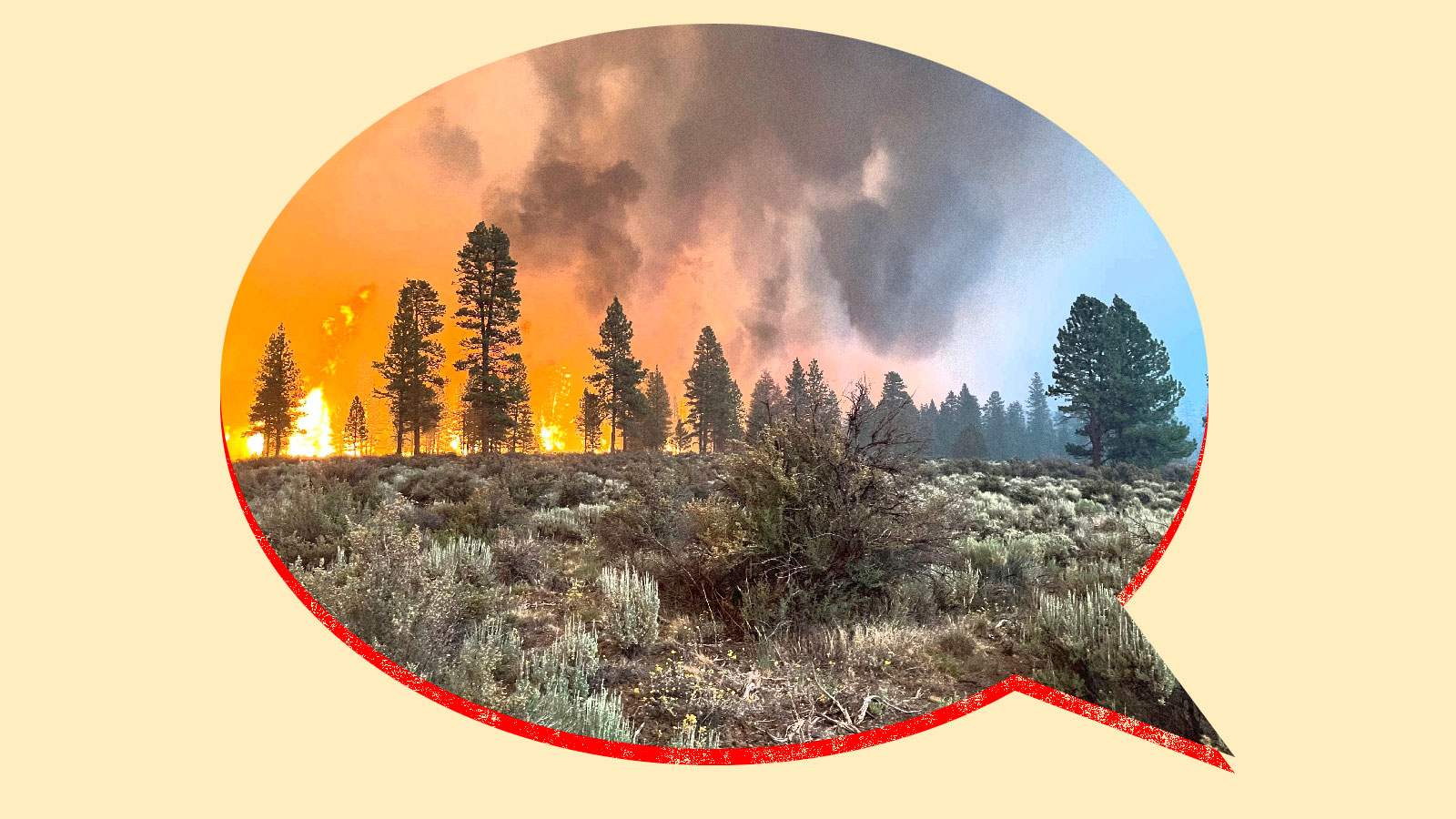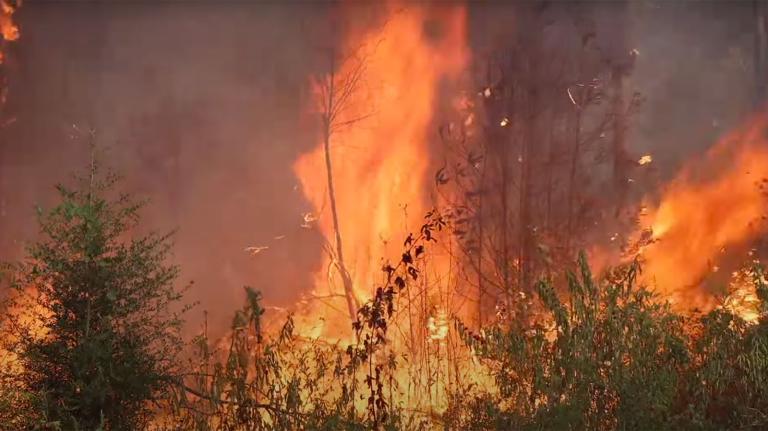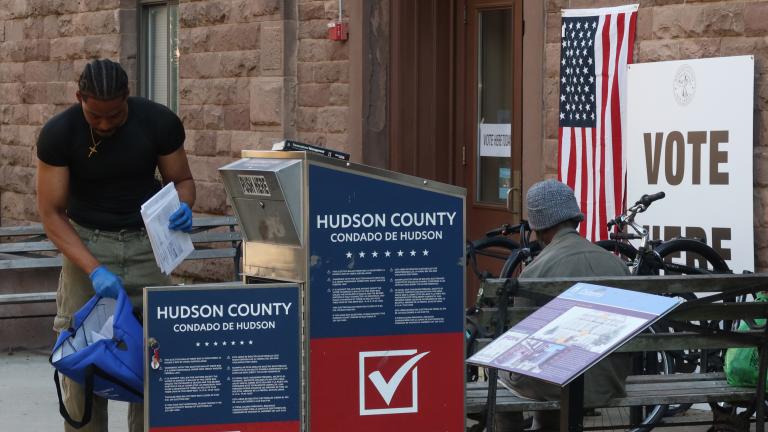On July 6, lightning sparked a fast-spreading wildfire in southern Oregon that’s now the largest in the country and the state’s third-largest on record. The Bootleg Fire, only recently getting contained after a period of cooler weather, has led more than 2,400 people to evacuate, destroyed at least 161 homes, and sent toxic smoke traveling across the country. The heat of the flames was so intense that it spawned a fire tornado.
Drought and extreme heat have plagued the West this year, combining with a century’s worth of wildfire suppression for an unprecedented fire season. A warming planet makes these giant fires more likely, and people around the world are seeing the flames and smoke, coming months ahead of schedule, as a wake-up call. So what did locals in the largely rural, conservative parts of Oregon’s wildfire country think about the most recent conflagration? Recent reports suggest that many people living near the Bootleg Fire don’t see any connection to rising temperatures.
For those who accept the scientific consensus around climate change, this sounds like a denial of reality. But new research suggests that many conservatives won’t link extreme weather with global warming no matter how extreme the weather gets in their backyards. Some experts argue that the phrase “climate change” has become so polarizing that you’d be better off avoiding those words altogether if you really want to address the planetary crisis.
“We get so hung up on forcing people to agree with us on the facts that I think we miss the bigger picture,” said Brianne Suldovsky, an assistant professor of communication at Portland State University. “You know, I want my conservative uncle to accept that climate science is real and valid and that humans are causing climate change. Fine, but we’ve tried that, and it’s not working.”
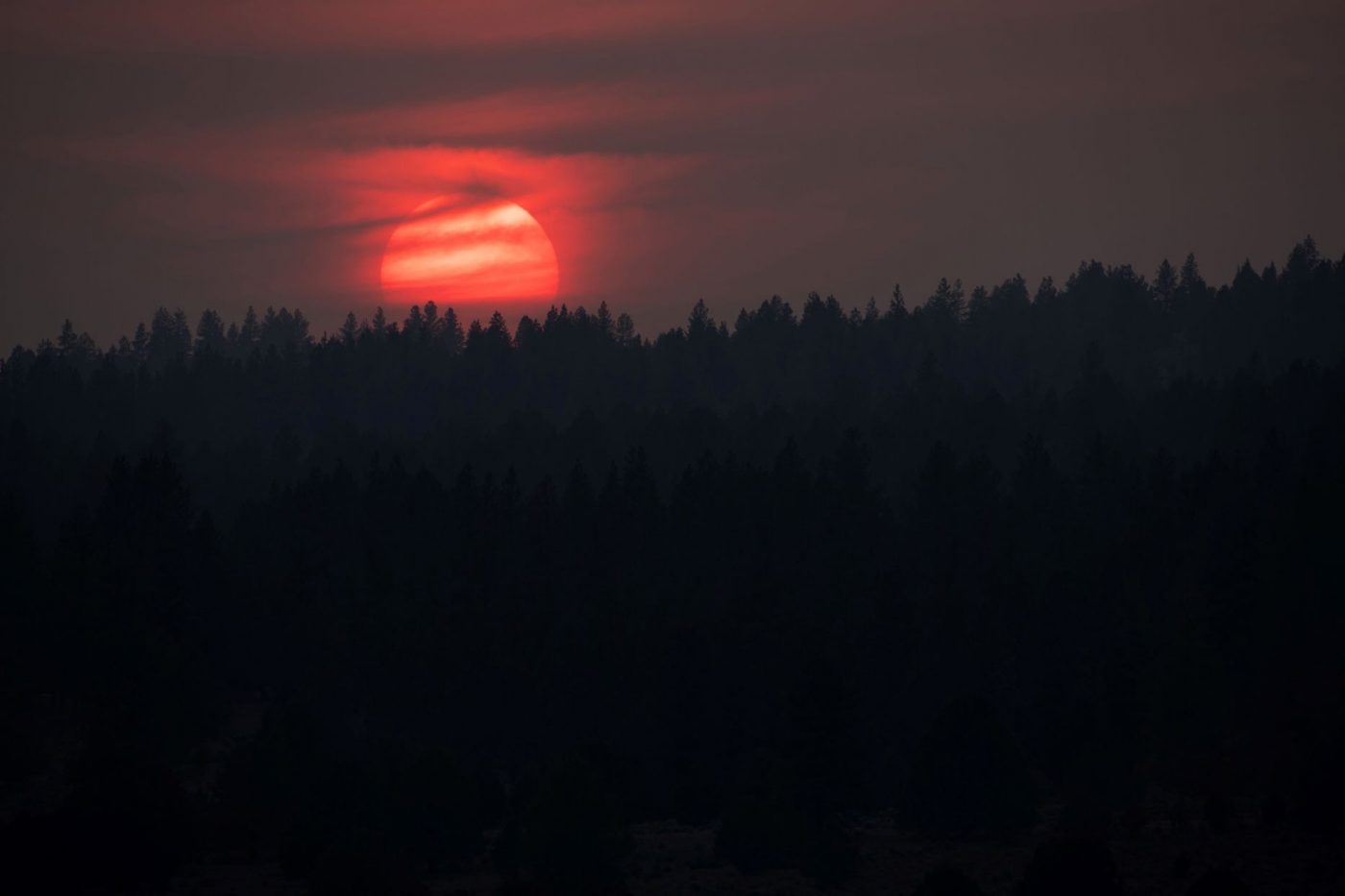
It’s not just conservatives who are ignoring the local evidence about their weather. It’s liberals, too. In a working paper, Suldosvky and a statistics researcher at Portland State surveyed people in Oregon, asking them if certain kinds of weather events were getting more or less frequent in their area, and more or less extreme. Then they looked at the ZIP codes that the participants lived in and compared their responses to local data on precipitation rates and temperature.
People who accepted the scientific consensus around climate change saw adverse weather events as being more frequent in their area — even when they weren’t. Likewise, people who denied climate change didn’t see extreme weather as extreme, even when it was happening right in front of them. People of all political persuasions often choose to see what they want to see.
“What is predicting people’s weather perceptions has nothing to do with their actual weather,” Suldovsky said. “It really is just whether or not they think climate change is happening, and whether or not they’re concerned about it.” Suldovsky attributes this to a mental quirk called “motivated reasoning,” a tendency people have to look for explanations to justify their preexisting conclusions, rather than weighing the evidence and drawing a conclusion.
The Washington Post recently spoke with locals in the small towns near the Bootleg Fire and found that many conservatives aren’t talking about the overheating planet — except maybe to scoff at the idea. They tended to point the finger for the supercharged blazes elsewhere, at environmentalists who have stopped logging efforts, for example. “Now the top end of the Forest Service are a bunch of flower children,” one resident of the town of Lakeview, southeast of the fire, told the Post. “That’s what the real problem is. It’s not that much hotter. It’s environmentally caused mismanagement.”
Suldovsky grew up in a very conservative household in a rural town in Idaho, and she didn’t use to accept the science behind climate change or evolution. She remembers coming to a high school science class prepared with Bible verses, arguing with her teacher that the Earth was only 6,000 years old. Nothing would change her mind — until later on, when she discovered a love of philosophy and questioned her beliefs. She says that “shoving more information” at people, or calling them stupid or anti-science, usually backfires.
“I deeply empathize with feeling like experts aren’t on your side, and that science isn’t on your side,” Suldovsky said. “And that position isn’t remedied by being told more science, right?”
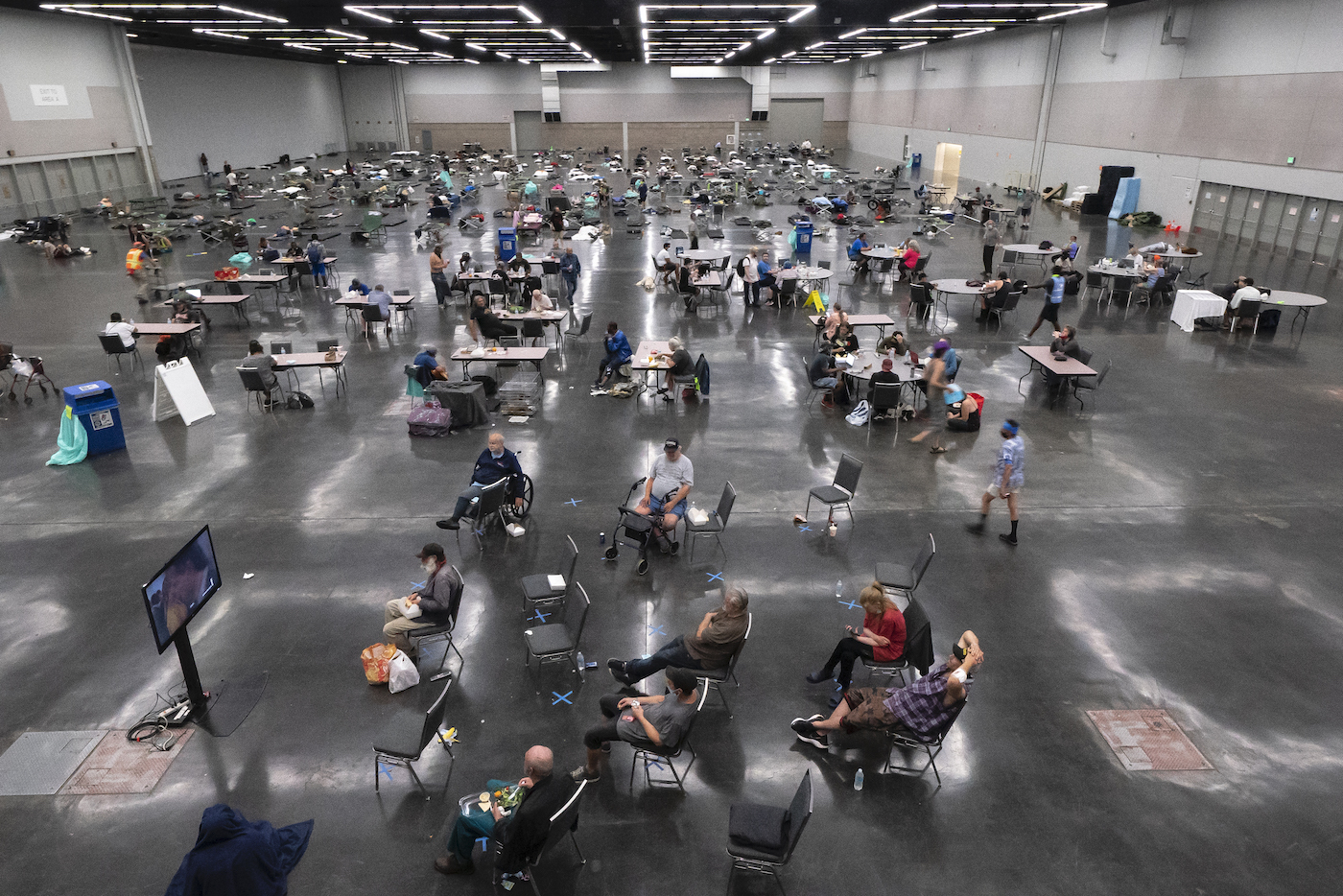
Suldovsky recently co-authored another study, published in the journal Climatic Change, that looked at how liberal and conservative Oregonians think differently about climate change. Through surveys, she found that liberals see climate science as simple and certain, and they tend to defer to the experts on climate change, even if what scientists are saying contradicts their personal experience. On the other hand, conservatives see climate science as complex and uncertain and tend to prioritize their own life experience over expert opinion. That’s why Suldovsky recommends leveraging conservatives’ experiences when talking to them about issues related to our overheating planet (without using the words “climate change,” of course).
There’s a growing sense among some experts in communication that it’s best to avoid the phrase. The American Meteorological Society has recommended talking about more frequent floods, worsening seasonal allergies, and extreme heat without mentioning the root of the problem. Sometimes that means using a byword, like “future-proofing” or “resilience.” Other times, it means changing your argument from one focused on climate change to an issue that conservatives tend to care more about, like the economy or energy independence. That approach works better for addressing the root of the problem — reducing carbon dioxide emissions and switching to renewables.
“There are lots of things we can gather support for that … don’t necessarily require us to convince people that human-caused climate change is real,” Suldovsky said. For example, consider the 115-degree heat wave that melted streetcar cables in Portland, buckled roads in Seattle, and killed more than 1,000 in Oregon, Washington, and British Columbia. It’ll be easier to convince conservatives in the Pacific Northwest that they need to be more prepared for super-hot temperatures in the future than to get them to say that the extreme heat was linked to global warming.
There’s evidence that this approach works: Towns along the coast of North Carolina have adopted rules that restrict new construction to higher ground, mentioning “flood damage” but ignoring the hot-button topic “sea-level rise.” In the Great Plains, local governments have paved the way for bike paths and required tree planting on new developments in the name of outdoor recreation and clean air.
Suldovsky gets that the pragmatic advice to gloss over “climate change” is controversial. But in the end, she said, it’s better to get something done than to keep arguing about a mostly lost cause.
“Do you want to prove that you’re correct, or do you want to adapt for climate change? It kind of feels like at this point, we need to choose between one or the other.”

